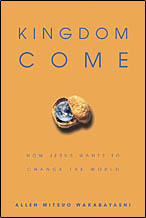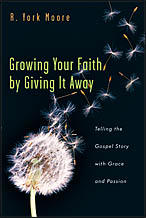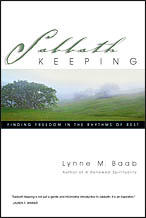Two books on Evangelism: Kingdom Come and Growing Your Faith by Giving it Away

 As I've reflected on the gospel of Jesus, I've become so convinced of the paradoxical simplicity and complexity of the Good News. The message is simple: through the life, death, and resurrection of Jesus, God has overcome the rule of sin, death, and Satan over creation, and is restoring his reign as King over all creation - and we get to be a part of this Kingdom through Christ's forgiveness and new life in his body, the church! Simple - a child can understand this gospel and receive it. The message doesn't need to be supplemented by our ideas to make it relevant. The gospel has a power of its own.
As I've reflected on the gospel of Jesus, I've become so convinced of the paradoxical simplicity and complexity of the Good News. The message is simple: through the life, death, and resurrection of Jesus, God has overcome the rule of sin, death, and Satan over creation, and is restoring his reign as King over all creation - and we get to be a part of this Kingdom through Christ's forgiveness and new life in his body, the church! Simple - a child can understand this gospel and receive it. The message doesn't need to be supplemented by our ideas to make it relevant. The gospel has a power of its own.Yet the manifestations of the gospel are too complex to fathom: no area of life or creation is beyond its redemptive touch. It affects the way we approach God, to be sure, but also the way we love our families, relate to our enemies, engage in politics, build our cities, care for our bodies, protect the environment, spend our resources, and know ourselves.
If the gospel is so good, why do so many Christians, including myself, have a hard time talking about it? My theory: we've got things backwards. Instead of preaching a simple gospel and practicing it in its complexity, we make the communication of the gospel complicated while our attempts to live it out are simplistic. We put obstacles in the way of people understanding the gospel in its simplicity - we preach the gospel-and-Conservatism, the gospel-and-Liberalism, the gospel-and-vegetarianism, the gospel-and-whatever-cause-or-group-I'm-passionate-about. We ask people to receive Jesus, and along with him, a whole host of other beliefs and values which are more representative of our culture than the Lord. And this makes the gospel hard to receive. So we work hard to develop programs, events, and training curricula to facilitate our telling of the story of Jesus. We fret over being seeker-friendly and relevant. And we feel like without the ideal circumstances, we're powerless to speak about Christ. And so we keep quiet.
In the meantime, our gospel living, aka Discipleship, is not much different than the way the rest of the world lives. The gospel is safely boxed up in our individualistic religious lives, rather than being unleashed in the life of the Spirit-led community of God. We don't live as if the church is the answer to the problems of poverty, ethnocentrism, violence, and disease. We offer a simplistic gospel: Jesus can save you from your sins and help you live a better life. For most of us, that's good enough.
R. York Moore's Growing Your Faith by Giving it Away (InterVarsity Press, 2005) calls us back to a simple faith in the power of the gospel to transform lives. Filled with personal stories of evangelistic experiences, both good and bad, the book offers hope and a challenge to all who stumble through communicating the gospel verbally (or avoid doing it altogether). Moore has definitely inspired me recently to more openly speak of Jesus with friends and total strangers.
Kingdom Come, by Allen Mitsuo Wakabayashi (InterVarsity Press, 2003), explores the gospel in all its fullness as the message of the coming (and already come) Kingdom of God. Moving beyond the individualism that permeates Western culture and American evangelicalism, Wakabayashi articulates the mission of God to change the world. Chapter 10, "Living in the Matrix," contains perhaps the clearest, most biblically holistic presentation of the gospel I've read - a gospel for the lost and the found, a gospel that tells God's story from beginning to end, integrating our life without Christ and our life with Christ into one grand tale of redemption, and emphasizing discipleship in community and in the way of the cross.
The gospel is at the heart of what it means to be a Christian. Anyone seeking to proclaim the gospel faithfully and live it out fully will do well to read these books in combination.
Download the Introduction and Chapter 3 of Growing Your Faith by Giving it Away.
Download Chapter 1 of Kingdom Come.
For more personal reflections on evangelism and the gospel, check out RobAHokie.

